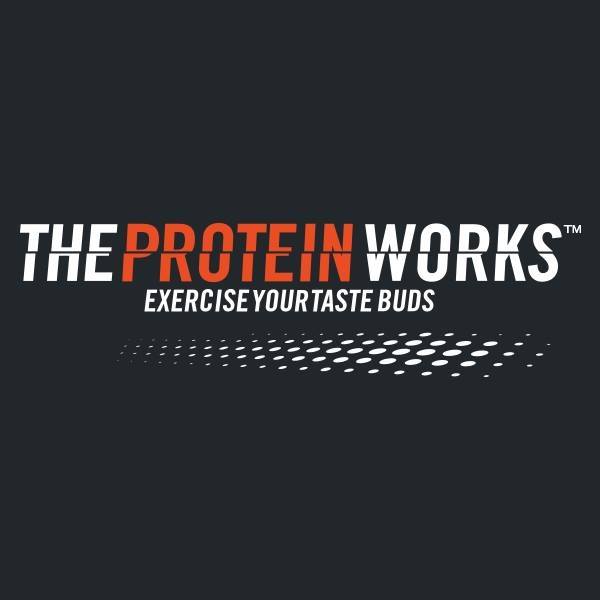
Cos’è la Dieta 16:8? La nostra guida al digiuno intermittente per la perdita di peso
Cos’è la Dieta 16:8? La nostra guida al digiuno intermittente per la perdita di peso
Siamo onesti, l’idea del digiuno non sembra la prospettiva più allettante – soprattutto se sei uno che mangia poco e spesso. Tuttavia, se la perdita di peso è il vostro obiettivo, non abbattetevi fino a quando non avete provato questo metodo!
Potreste già avere familiarità con il digiuno 5:2; la dieta in cui si limita l’apporto calorico al 25% del fabbisogno calorico (generalmente 500 calorie al giorno o meno) per due giorni a settimana e si mangia normalmente il resto dei giorni. Questo modo di mangiare è stato evidenziato per i suoi benefici in termini di perdita di peso in aggiunta a molti altri benefici per la salute, come la riduzione della resistenza all’insulina.
Il digiuno 16:8 ha guadagnato un sacco di notorietà negli ultimi anni, uno dei suoi seguaci più famosi è Hugh Jackman che da credito al digiuno 16:8 per aver ottenuto il suo fisico da Wolverine!
Quindi, cos’è esattamente il digiuno in 16:8?
Nella dieta 16:8, si passano 16 ore al giorno consumando solo bevande non zuccherate come acqua, tè e caffè. La rimanente finestra di tempo di 8 ore si consumano tutti i pasti e gli spuntini della giornata. Molte persone scelgono di farlo iniziando il digiuno serale, saltando la colazione e consumando il primo pasto della giornata intorno all’ora di pranzo. Uno dei vantaggi di questo modo di mangiare è che non ci sono cibi off limits, tuttavia alcune persone scelgono di combinare il digiuno 16:8 con la dieta keto per dare una spinta in più alla loro perdita di peso. Questo ciclo può essere ripetuto tutte le volte che vuoi, da uno o due giorni alla settimana o tutti i giorni in base alla tua preferenza personale.
Sì, 16 ore senza cibo possono sembrare una tortura – lo sappiamo! Ma prima abbattersi, vale la pena sottolinerare che molte persone scelgono di fissare avere la loro finestra di 8 ore per mangiare tra le 10-6 o le 12-8 (a seconda che tu sia una persona che fa colazione o meno), il che ti lascia comunque un sacco di tempo per mangiare ad un’ora adeguata e ti assicura di dormire in una parte significativa del periodo di digiuno!
Quali sono i vantaggi del digiuno 16:8?
Mentre molte diete hanno una serie di regole e regolamenti rigorosi da seguire; il digiuno 16:8 richiede uno sforzo minimo e non potrebbe essere più facile da seguire una volta che avete scelto la vostra scelta di 8 ore di alimentazione. Il digiuno 16:8 è generalmente considerato molto più flessibile e meno restrittivo di molte altre diete, poiché può essere facilmente incorporato in qualsiasi stile di vita. Ecco alcuni dei benefici per la salute che si possono ottenere con il digiuno 16:8:
Velocizzazione della perdita di peso:
Limitando l’assunzione di calorie a poche ore al giorno, non solo si contribuirà a ridurre le calorie per tutta la durata della giornata, ma gli studi hanno anche scoperto che il digiuno può effettivamente aumentare il metabolismo e aumentare la perdita di peso (2, 3, 4).
Miglioramento della sensibilità all’insulina (controllo dello zucchero nel sangue):
Il digiuno intermittente ha anche dimostrato di ridurre i livelli di insulina a digiuno fino al 31% e di abbassare la glicemia del 3-6%, riducendo potenzialmente il rischio di diabete (1).
Maggiore longevità: Mentre le prove nell’uomo sono limitate, diversi studi su animali hanno scoperto che il digiuno intermittente può prolungare la longevità (5).
Il digiuno per 16 ore è effettivamente sano?
In una parola, sì. Tuttavia, non è raccomandato per le donne incinte o che allattano o che cercano di concepire. Il digiuno intermittente 16/8 è semplice, sicuro e sostenibile. Non è inoltre consigliato a chi soffre di squilibri ormonali, ai diabetici o a chi soffre di disturbi alimentari o di IMC al di sotto dei 18,5 anni (6).
Il digiuno 16:8 è adatto a me?
In sostanza, dipende dalle vostre preferenze personali, dal vostro stile di vita e dal vostro stile alimentare.
Il digiuno intermittente 16/8 può essere un modo sostenibile, sicuro e facile per migliorare la propria salute se abbinato a una dieta nutriente e a uno stile di vita sano. Non dovrebbe quindi essere considerato un sostituto di una dieta equilibrata, poiché è importante includere cibi sani e integrali per rimanere in buona salute e ottenere i migliori risultati.
Se mangiate poco e spesso per natura e vi trovate a mangiare durante il giorno e la sera, questo tipo di dieta potrebbe non fare per voi. Detto questo, vale certamente la pena provare e vedere come vi trovate, perché potreste rimanere sorpresi da quanto vi sentiate sazi solo restando idratati durante il periodo di digiuno
L’unico vero sforzo che comporta il digiuno in 16:8 è decidere quando fissare la vostra finestra di alimentazione di 8 ore e rimanere al suo interno. Dover pensare a quando si sta mangiando può anche fornire ulteriori benefici alla salute (e al girovita) rispetto a quelli menzionati in precedenza. Essendo più restrittivi con “quando mangiate”, potreste trovarvi a rifiutare opportunità di spuntini “insensati” man mano che si presentano.
Ecco alcuni fattori da considerare quando si segue la dieta 16:8:
L’ora del giorno in cui ci si allena
Se preferite allenarvi la mattina presto, diciamo dalle 6 alle 7 del mattino, dovete fare rifornimento dopo; questo significherebbe iniziare il vostro turno di 8 ore di alimentazione alle 7 del mattino e quindi non mangiare più dopo le 3 del pomeriggio. È probabile che vi ritrovereste affamati prima di andare a dormire, soprattutto se state socializzando con altre persone che mangiamo il loro pasto serale mentre voi non potete. Se è fattibile, potete anche decidere di allenarvi durante la pausa pranzo o la sera, il che vi permetterà comunque di digiunare fino alle 11.00/12.00 e di mangiare un pasto dopo l’allenamento prima che la finestra chiuda alle 19.00/20.00.
Dove vi trovate fisicamente quando scegliete di mangiare:
La maggior parte di noi tende a mangiare in base alla situazione in cui ci si trova piuttosto che al livello di fame. Per esempio, una gita al cinema può portarci a prendere i popcorn; indipendentemente dal fatto che abbiamo fame o meno… sarebbe strano non farlo, no?
Se si è attenti ai momenti in cui si mangia, si può diventare consapevoli di abitudini alimentari di cui non ci si è nemmeno accorti di avere. Diciamo che ti piace uno spuntino notturno guardando Netflix o un pasticcino con il caffè mentre vai al lavoro; se il tuo digiuno inizia alle 20:00 fino alle 12:00, queste abitudini di spuntino saranno automaticamente tagliate – insieme alle loro calorie – è un bonus!
La quantità di sonno:
Quando siamo stanchi, è comune fare uno spuntino e mangiare più del solito nel tentativo di darci una spinta energica. Tuttavia, imponendosi una finestra di alimentazione e un periodo di digiuno, è probabile che vi troverete a letto prima per evitare la tentazione di fare uno spuntino se vi sentite affamati a tarda sera. Questo non solo renderà la vostra dieta più efficace, ma raccoglierà anche i frutti con qualche minuto di sonno in più. Concederete al vostro corpo più tempo per ringiovanire e riparare sia mentalmente che fisicamente e vi sveglierete sentendovi rinfrescati. Mantenere 7 ore di riposo è stato collegato ad un ridotto rischio di malattie croniche, al miglioramento del metabolismo e ad una migliore gestione del peso – quindi non è una cosa da poco se si sta cercando di perdere peso!
Quante volte devo digiunare 16:8?
Se il vostro obiettivo è quello di perdere peso o semplicemente sviluppare abitudini alimentari più sane, il digiuno 16:8 può essere incorporato nel vostro stile di vita un giorno alla settimana (o più giorni, alcune persone scelgono di fare un giorno sì e uno no). Potete anche scegliere di seguire il digiuno 16:8 per una settimana o due settimane, per poi ridurlo gradualmente una volta che iniziate a vedere i risultati.
Detto questo, a patto che si mangi una gamma equilibrata e nutriente di alimenti durante le 8 ore, il digiuno 16:8 è sicuro, sostenibile e abbastanza flessibile da diventare una strategia alimentare a tempo pieno. Se ritenete che questo modo di mangiare sia in linea con voi e vi aiuti a raggiungere i vostri obiettivi corporei desiderati, non c’è motivo per cui non dovreste continuare a mangiare in questo modo per tutto il tempo che desiderate. Tuttavia, consultate sempre i nostri consigli in questo articolo per assicurarvi che il vostro digiuno sia sano e sicuro.
Posso davvero mangiare tutto quello che voglio quando sono a digiuno alle 16:8?
Non del tutto, no. Non è consigliabile mangiare cibo spazzatura o abbuffarsi quando si segue la dieta 16:8. Poiché non ci sono regole fisse sui tipi di cibo che devi mangiare, questo non ti dà la libertà di mangiare qualsiasi cosa o tutto ciò che è in vista – pardone! Vi permette comunque di avere qualche piacere occasionale e di mangiare una vasta gamma di gruppi di alimenti. I cibi ad alto contenuto di grassi e zuccheri devono essere consumati con moderazione, ma non sono off limits e possono essere gustati come una delizia, a condizione di rispettare i vostri obiettivi quotidiani in termini di calorie. Calcola qui il tuo apporto calorico giornaliero con il nostro Calcolatore di Calorie TPW per assicurarti di rispettare il tuo obiettivo giornaliero di calorie e raggiungere i tuoi obiettivi di perdita di peso con facilità!
Posso bere alcolici durante il digiuno 16:8?
L’alcool non è strettamente off limits, ma bere durante il digiuno 16:8 può compromettere i vostri sforzi per la perdita di peso. Durante il periodo di digiuno, non dovreste mangiare cibo o consumare bevande che non siano acqua non zuccherata, tè e caffè, quindi bevendo alcol (che è calorico) rompete il vostro digiuno dando al vostro corpo un mucchio di calorie durante il periodo in cui dovreste essere a digiuno. Detto questo, bere con moderazione durante le 8 ore di alimentazione va benissimo e non annullerà il vostro duro lavoro.
Uno dei principali vantaggi del digiuno intermittente è la sua capacità di aumentare il bruciore dei grassi, mentre l’alcol ha dimostrato di avere l’effetto opposto. L’alcol abbassa anche le nostre inibizioni e può portarci a fare scelte sbagliate quando si tratta di cibo; sì, quella borsa di snack con una bottiglia di vino o il take away delle 2 del mattino dopo una notte fuori, ci siamo passati tutti. Così si potrebbe optare al taglio dell’alcool mentre si segue il digiuno 16:8 se la vostra motivazione principale è la perdita di peso come potrebbe eventualmente interferire con i vostri risultati (3, 7).
Come posso iniziare?
Innanzitutto, scegliete una finestra (8 ore) per mangiare che ritenete più adatta a voi e al vostro stile di vita.
Come già detto, molte persone scelgono di mantenere la finestra per mangiare tra le 12:00 e le 20:00, poiché ciò significa che dormirete per una parte significativa del vostro periodo di digiuno e che dovrete saltare solo la colazione. Questo vi permette anche di consumare un pranzo e una cena equilibrati in compagnia di famiglia/amici. Potrete anche fare uno spuntino durante il giorno quando l’orologio segna dalle 12:00 fino alle 20:00.
Alcuni dei mattinieri tra noi scelgono di mangiare tra le 9 e le 17, questo permette di fare una colazione sana al mattino, un pranzo normale e un pasto o uno spuntino prima che il periodo di digiuno inizi alle 17.
Si consiglia di sperimentare e di scegliere l’orario che meglio si adatta al vostro programma e al vostro stile di vita.
Per aumentare ulteriormente i potenziali benefici per la salute che si possono ottenere dal digiuno alle 16:8, si raccomanda di attenersi a una dieta nutriente ed equilibrata che contenga cibi integrali e di assicurarsi di rimanere idratati anche per tutto il periodo di digiuno.
Provate a bilanciare i vostri pasti con una buona varietà di cibi integrali sani, come ad esempio:
– Frutta: Frutti di bosco, banane, kiwi, mele, arance, pesche, pere, ecc.
– Verdure: Broccoli, patate dolci, verdure a foglia come spinaci e cavoli, cavolfiore, pomodori, ecc.
– Cereali integrali: Quinoa, riso integrale, avena, grano saraceno, orzo, ecc.
– Grassi sani: Olive, olio d’oliva, avocado e olio di cocco
– Fonti di proteine animali: carne rossa magra, pollame, pesce oleoso, legumi, crostacei, molluschi, uova, latticini, ecc.
– Fonti di proteine vegetali: legumi, noci, semi, ecc.
Bere bevande non zuccherate come acqua e tè e caffè non zuccherati, anche durante il digiuno, può anche aiutare a controllare l’appetito mantenendo l’idratazione.
Anche se non ci sono regole prestabilite sul tipo di cibo che si può mangiare con la dieta a digiuno 16:8, se si esagera con il cibo spazzatura e le bevande zuccherate durante la finestra di alimentazione, si possono effettivamente annullare gli effetti positivi associati al 16:8 e potrebbe finire per causare più danni che bene alla salute. Come ogni dieta sana, è tutta una questione di equilibrio e fintanto che vi assicurate di mangiare cibi integrali di buona qualità (come detto in precedenza) il trattamento non vi farà alcun danno.
Ci sono degli aspetti negativi nel digiuno alle 16:8?
Come abbiamo discusso, ci sono molti benefici per la salute a digiuno intermittente ed è molto sicuro, tuttavia può portare alcuni svantaggi per alcune persone e potrebbe non essere la dieta giusta per tutti.
Il digiuno 16:8 può causare problemi a breve termine come la fame e la sensazione di stanchezza/debolezze, tuttavia questo probabilmente si attenuerà una volta entrati in una routin; potrebbe essere dovuto al drastico cambiamento dello stile alimentare, soprattutto se si è stati abituati in diversamente in precedenza.
Poiché la vostra finestra di alimentazione è limitata a 8 ore al giorno, questo può portare alcune persone a mangiare più del solito in questo periodo di tempo, cercando di compensare le ore di digiuno. Questo potrebbe portare potenzialmente ad un aumento di peso, a problemi digestivi e allo sviluppo di abitudini alimentari malsane.
Si consiglia quindi di iniziare il digiuno in 16:8 gradualmente e se si hanno preoccupazioni o si riscontrano problemi o sintomi negativi è necessario parlare con un medico e tornare al proprio modo di mangiare di prima.
The take home:
Il digiuno intermittente 16:8 è diventato una dieta popolare perché è super semplice da seguire, flessibile e sostenibile a lungo termine. È anche molto conveniente, in quanto può ridurre la quantità di denaro e di tempo da spendere in cucina per preparare il cibo ogni settimana.
Si consiglia di parlare con un nutrizionista o un medico prima di provare il digiuno intermittente, soprattutto se si hanno condizioni di salute non conformi. Per ottenere i migliori risultati si consiglia di seguire una dieta sana durante il periodo di digiuno e di bere molte bevande non zuccherate come acqua, tè e caffè per rimanere idratati; questo vi aiuterà anche a sentirvi meno affamati durante il periodo di digiuno, poiché molte volte la sensazione di fame può essere dovuta alla disidratazione.
Reference List:
- Barnosky, Adrienne & Hoddy, Kristin & Unterman, Terry & Varady, Krista. (2014). Intermittent fasting vs daily calorie restriction for type 2 diabetes prevention: A review of human findings. Translational Research. 164. 10.1016/j.trsl.2014.05.013.
- Byrne, Nuala & Sainsbury, Amanda & King, N & Hills, Andrew & Wood, Rachel. (2017). Intermittent energy restriction improves weight loss efficiency in obese men—The MATADOR study. International Journal of Obesity. 42. 10.1038/ijo.2017.206.
- Cains, Sarah & Blomeley, Craig & Kollo, Mihaly & Rácz, Romeo & Burdakov, Denis. (2017). Agrp neuron activity is required for alcohol-induced overeating. Nature Communications. 8. 14014. 10.1038/ncomms14014.
- El Khatib, Sami & Yassine, Aya. (2019). Insights Gained from Intermittent Fasting & its Impact on Weight Management. International Journal of Science and Research (IJSR). 8. 1734-1743. 10.21275/ART2020639.
- Ganesan, Kavitha & Habboush, Yacob & Sultan, Senan. (2018). Intermittent Fasting: The Choice for a Healthier Lifestyle. Cureus. 10. 10.7759/cureus.2947.
- Goodrick, Charles & Ingram, Donald & Reynolds, Mark & Freeman, John & Cider, Nancy. (1982). Effects of Intermittent Feeding Upon Growth and Life Span in Rats. Gerontology. 28. 233-41. 10.1159/000212538.
- Malinowski, Bartosz & Zalewska, Klaudia & Węsierska, Anna & Sokołowska, Maya & Socha, Maciej & Liczner, Grzegorz & Pawlak-Osińska, Katarzyna & Wiciński, Michał. (2019). Intermittent Fasting in Cardiovascular Disorders—An Overview. Nutrients. 11. 673. 10.3390/nu11030673.
- Raben, Anne & Agerholm-Larsen, Lisa & Flint, Anne & Holst, Jens & Astrup, Arne. (2003). Meals with similar energy densities but rich in protein, fat, carbohydrate, or alcohol have different effects on energy expenditure and substrate metabolism but not on appetite and energy intake. The American journal of clinical nutrition. 77. 91-100. 10.1093/ajcn/77.1.91.






Non ci sono ancora commenti!